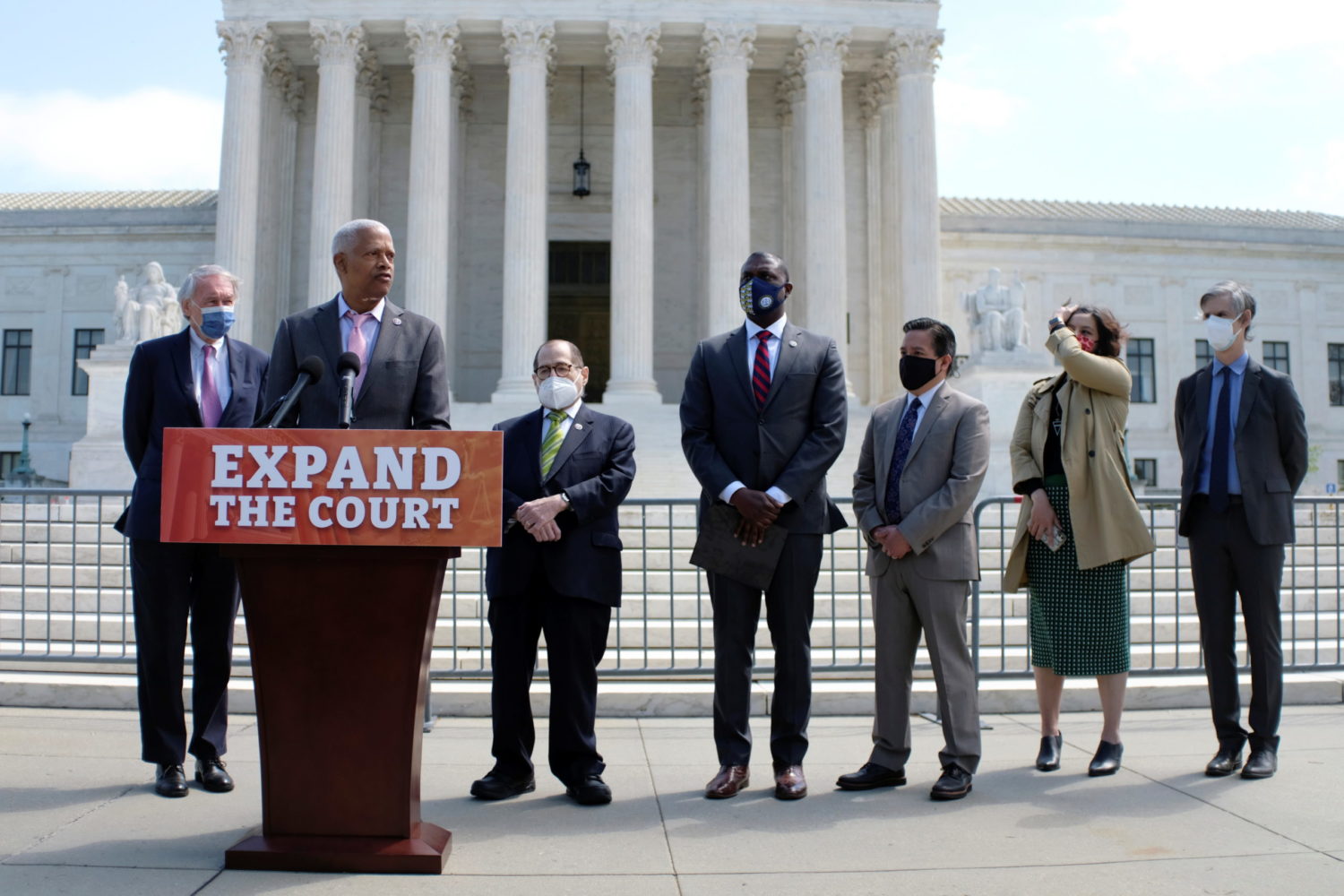
By Andrew Chung
(Reuters) – U.S. Supreme Court justices on Monday appeared reluctant to let people who have been allowed to stay in the United States on humanitarian grounds apply to become permanent residents if they entered the country illegally.
The justices heard arguments in an appeal by a married couple from El Salvador who were granted so-called Temporary Protected Status of a lower court ruling that barred their applications for permanent residency, also known as a green card, because of their unlawful entry.
The case could affect thousands of immigrants, many of whom have lived in the United States for years. President Joe Biden’s administration opposes the immigrants in the case. The dispute puts Biden, who has sought to reverse many of his Republican predecessor Donald Trump’s hardline immigration policies, at odds with immigration advocacy groups and some of his fellow Democrats.
A federal law called the Immigration and Nationality Act generally requires that people seeking to become permanent residents have been “inspected and admitted” into the United States. At issue in the case is whether a grant of Temporary Protected Status, which gives the recipient “lawful status,” satisfies those requirements.
Some justices suggested it might be a stretch to interpret the law as deeming the plaintiffs “admitted.”
“They clearly were not admitted at the borders, so is that a fiction, is it metaphysical, what is it? I don’t know,” conservative Justice Clarence Thomas asked.
Liberal Justice Elena Kagan also cast doubt on whether the law broadly considers people who the government categorizes as “non-immigrants,” including those with Temporary Protected Status, as having been legally admitted.
Some justices suggested that the law’s meaning is not so clear cut.
Liberal Justice Sonia Sotomayor told Justice Department lawyer Michael Huston, “If you’re asking us to find the better reading of the statute, we should go by its terms: Those people have been admitted.”
Foreign nationals can be granted Temporary Protected Status if a humanitarian crisis in their home country, such as a natural disaster or armed conflict, would make their return unsafe. There are about 400,000 people in the United States with protected status, which prevents deportation and let them work legally.
The case involves Jose Sanchez and Sonia Gonzalez, who live in New Jersey. They have four children, the youngest of whom was born in the United States.
The couple twice entered the country illegally: in 1997 and 1998. After a series of earthquakes in 2001, the United States designated El Salvador as covered under the Temporary Protected Status program. The couple received protection under the program that same year. U.S. officials rejected their 2014 applications for green cards because they had not been lawfully admitted.
They sued in federal court, saying that those with lawful status, including Temporary Protected Status recipients, are deemed to have been lawfully admitted, and may apply for permanent residency. Last year, the Philadelphia-based 3rd U.S. Circuit Court of Appeals ruled against the couple.
Besides El Salvador, 10 other countries have such designations: Haiti, Honduras, Nepal, Nicaragua Somalia, Sudan, South Sudan, Syria, Venezuela and Yemen.
(Reporting by Andrew Chung in New York; Editing by Will Dunham)











